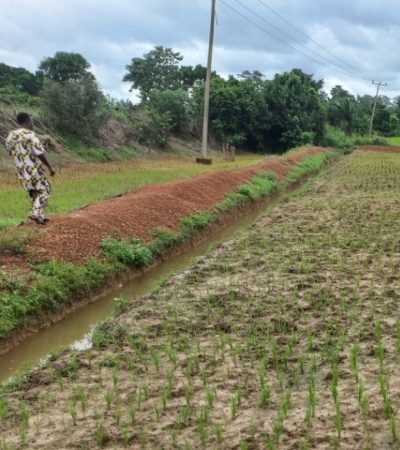In 2003, a group of women from a community living along the shores of Lake Kivu in western Rwanda started COOPAVI, the first women’s cooperative to undertake fishing in the lake. But most of the women had never fished before, and they did not own any boats or supplies that would support their efforts to generate income and better feed their families.
An $85,000 capacity building grant from Feed the Future in 2011 dramatically improved the cooperative’s prospects for success, helping them to acquire motor boats, heavy-duty coolers, fishing equipment, and computers to improve reporting and accountability and support additional training.
This support has already paid off tremendously for the women of COOPAVI: in the two years since receiving the Feed the Future grant, sales revenues increased by 25 and 30 times respectively, and the cooperative’s net income has increased by more than 300 percent since 2010. Members now catch 13,000 kilograms of a high-protein local fish known as isambaza each quarter and give back to their community, as well. COOPAVI proudly donates ten percent of its profits and fresh fish to a local orphanage and hospital, benefiting hundreds of people.
“My husband believed that fishing wasn’t for women – that it was a man’s job,” says one of COOPAVI’s members. “Finally he understood when he found out how much money I would be earning. I am no longer a burden for him. People who think women cannot fish are lagging behind the times.”
Nutrition among cooperative members and their children is also improving. COOPAVI member Esperance Nyirabasigari sees a direct link between her new profits and her family’s nutrition. “We fish, sell, and keep some isambaza to feed our families. Our children are no longer hungry because of COOPAVI.”
An additional grant from Feed the Future will enable COOPAVI to process fish flour and sell it on a much larger scale in the future.
The U.S. African Development Foundation (USADF) provided this Feed the Future capacity building grant to the COOPAVI cooperative. For more than 25 years, USADF has supported African women, particularly farmers and their husbands, to access training, inputs, credit, processing equipment and new markets to generate income and improve the livelihoods of their households. Rural women have the opportunity to engage in dialogue and decision-making related to issues that affect their daily lives. Currently, USADF directly supports more than 50,000 African women to improve their incomes and community nutrition in nine Feed the Future countries.
Watch a video on the COOPAVI women’s fishing cooperative in Rwanda.




